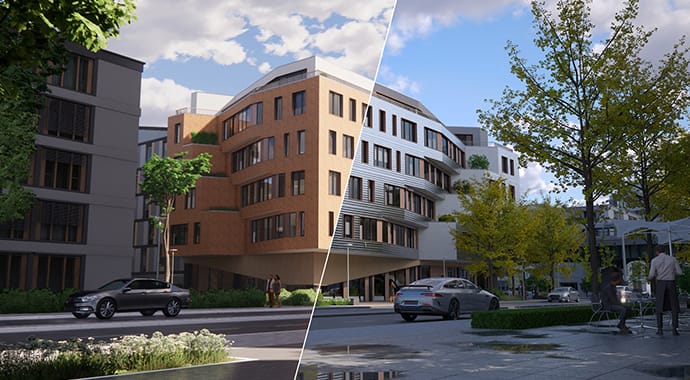
Enscape compatibility
Transfer your Enscape materials, compatible 3D models, and cloud settings to V-Ray. Build on designers’ work and take your model to the highest level of photorealism.

Transfer your Enscape materials, compatible 3D models, and cloud settings to V-Ray. Build on designers’ work and take your model to the highest level of photorealism.
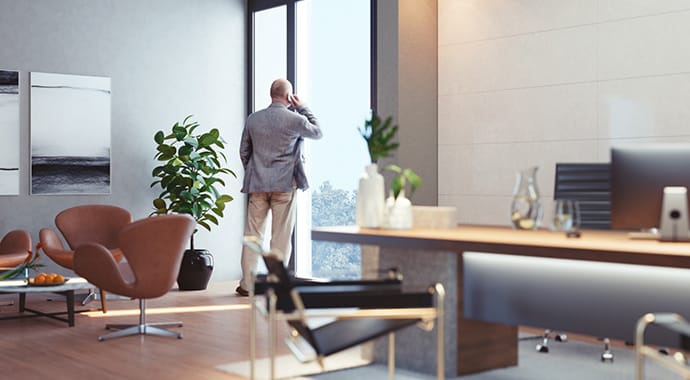
Our integrated asset library, Chaos Cosmos, enables you to search and add render-ready objects, materials, and HDRI skies to your model directly in Revit. With accurate scale, automatic LODs and interoperability across 3ds Max, SketchUp and Rhino, Chaos Cosmos assets are an essential addition to any Revit pipeline.
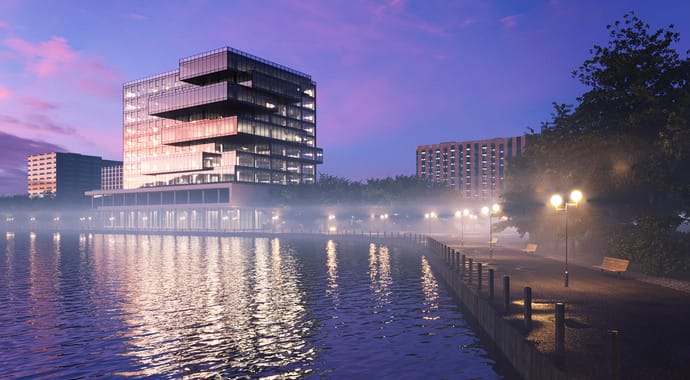
V-Ray comes with two powerful rendering engines. You can choose between super-fast GPU and CPU or Hybrid rendering to best suit your project needs and requirements.
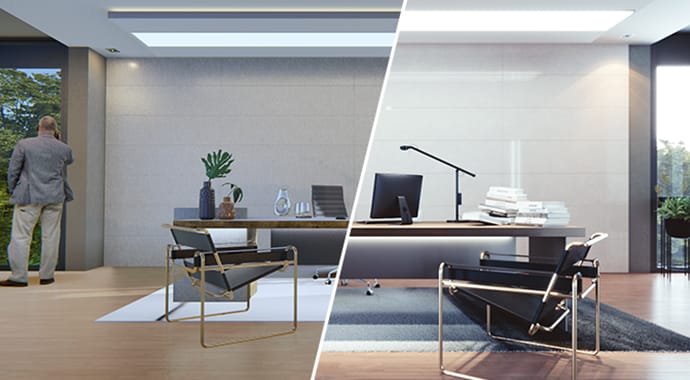
With V-Ray Vision, you receive real-time high-quality visual feedback of your model as set up materials, lights, and cameras. Alternatively, you can take your design to the next level with Chaos Vantage Live Link, and explore even the most complex model in pure ray-traced real-time.
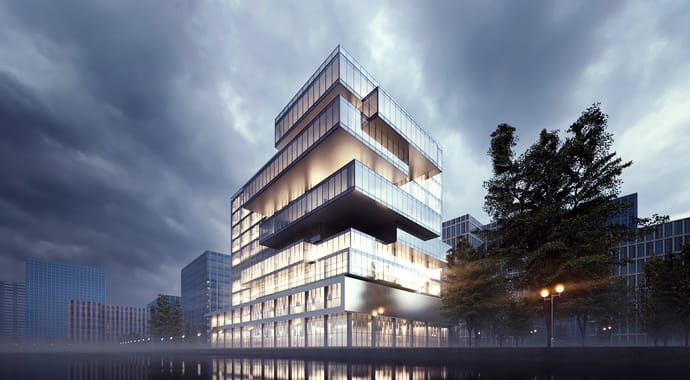
The NVIDIA AI Denoiser uses artificial intelligence to remove noise in an instant. And the V-Ray Denoiser supports denoising individual render channels to simplify compositing.
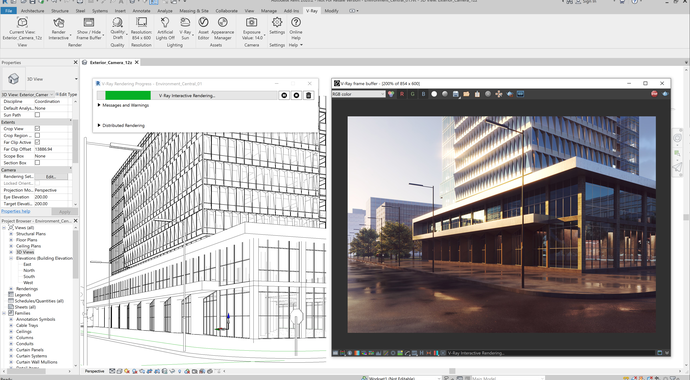
Render interactively while you design. Fine-tune lights, materials and cameras and see the results right away.
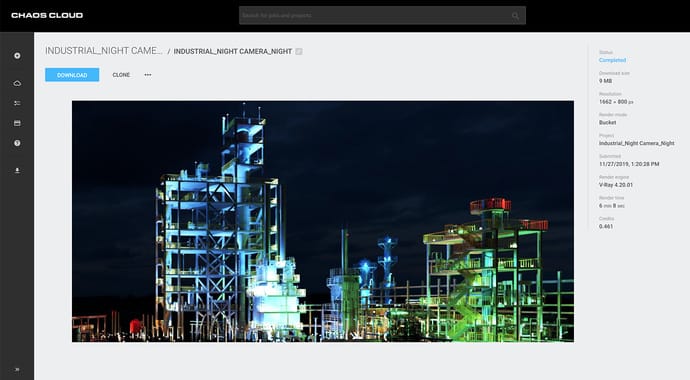
Rendering on the Cloud is just one click away.
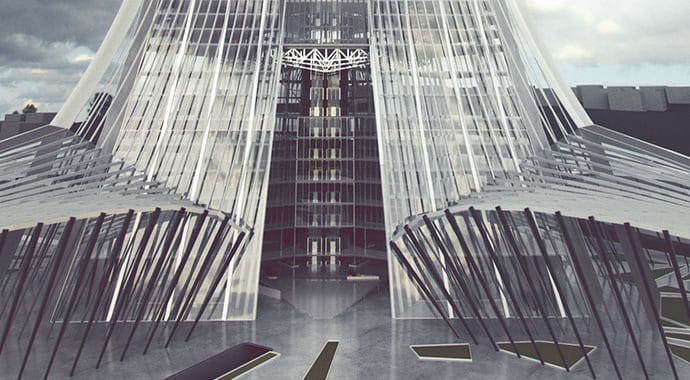
Powerful and scalable distributed rendering system that's simple and fast. Get an extra speed boost with V-Ray Render nodes.
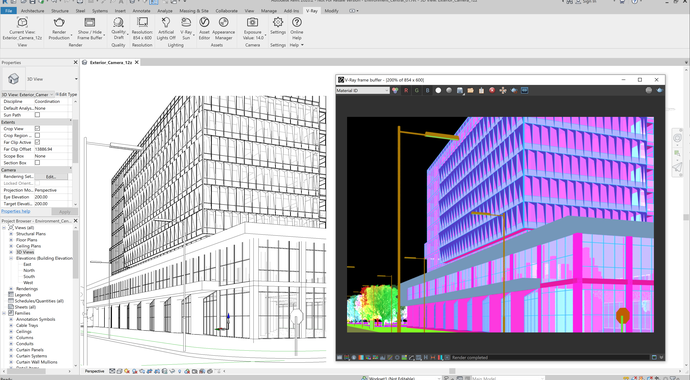
Choose from many unique beauty, utility and matte passes to give you more control over your rendered images in compositing.
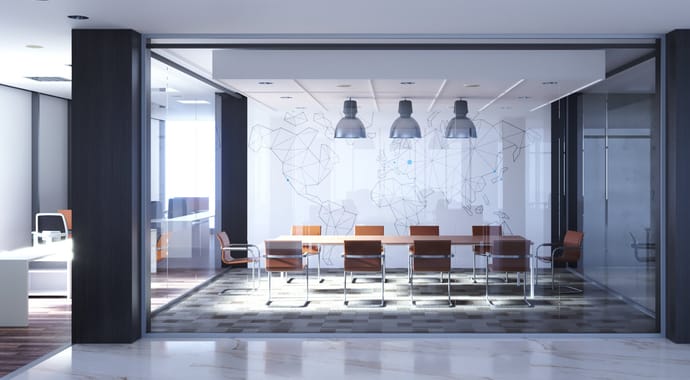
Automatically analyzes your scene to optimize rendering so you get the best quality in less time.
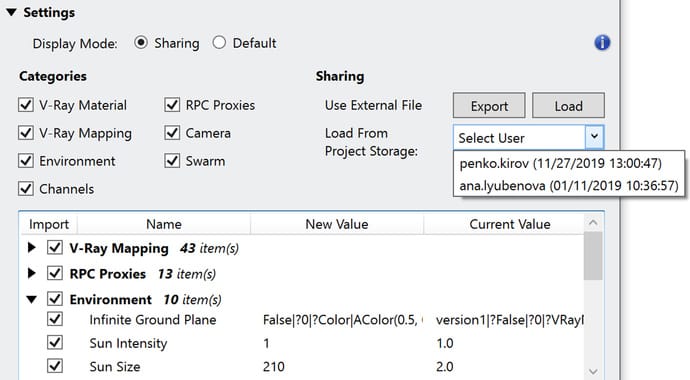
Set up individual lighting, mood, and composition per view in the same Revit model. Easily share render settings across teams and projects.
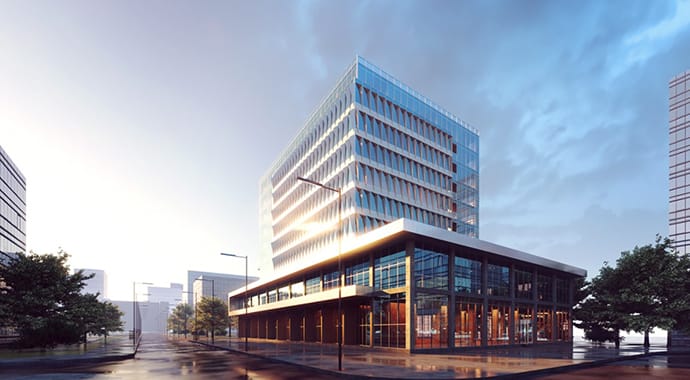
Leave V-Ray to render your project images while you are away. Batch rendering helps you schedule multiple views for rendering with a click of a button.
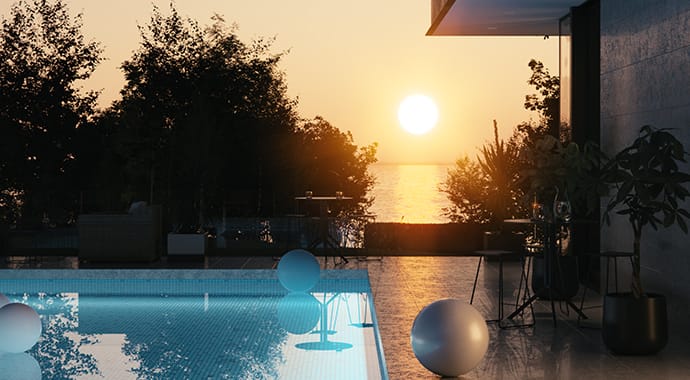
V-Ray adds extra realism to Revit’s Solar Study. Explore and visualize the impact of natural light and shadows on your designs across a variety of timespans.

Create 3D environments faster than ever. Easily incorporate and render captures of complex 3D environments and objects.

Render point clouds in Revit with precision and realism, seamlessly integrating scan data for stunning clarity.
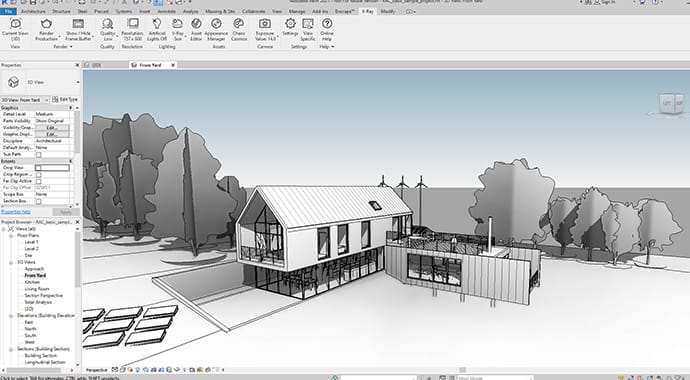
V-Ray naturally fits into Revit's UI and complements your Revit workflow without altering your BIM database.
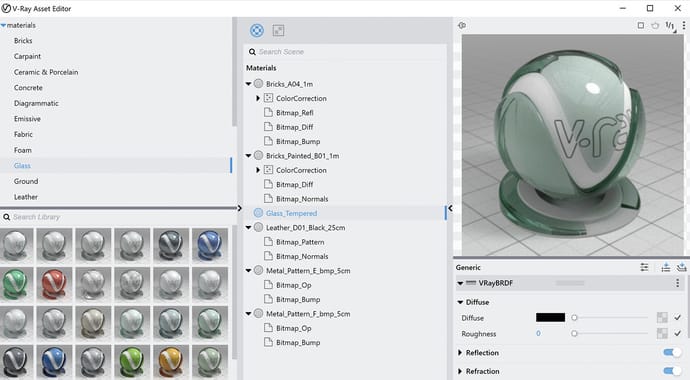
Create, edit, save and manage your V-Ray materials all in one place with the Asset Editor. Assign materials to a new proxy object, save it in the Editor and reuse this configuration in any project.
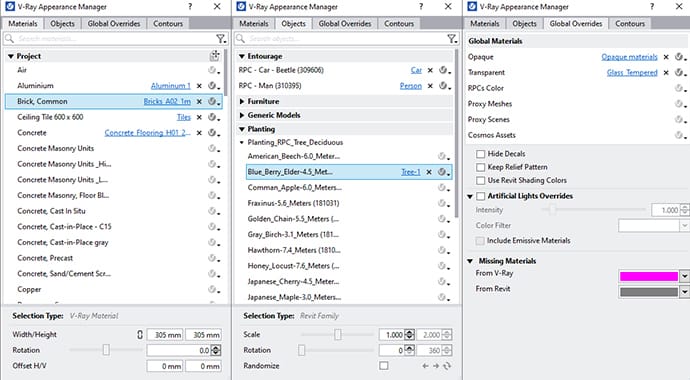
Take your Revit renders to the next level. With the Appearance Manager, you can set basic Revit assets to automatically switch to more realistic V-Ray assets at render time.
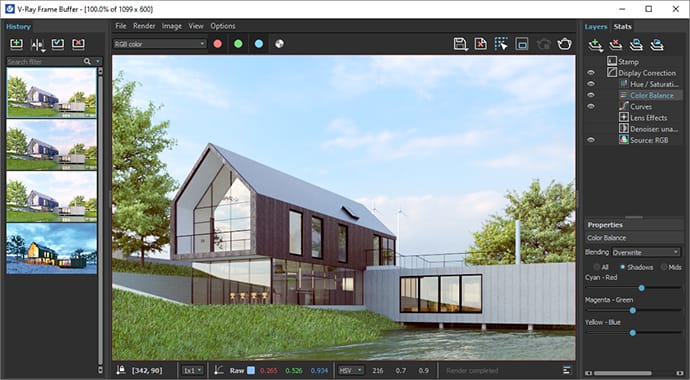
Track history of your rendered images, fine-tune their color parameters and save them directly to your Revit project. Use the new layer-based compositor to do color corrections of final renders and save your presets for future projects.
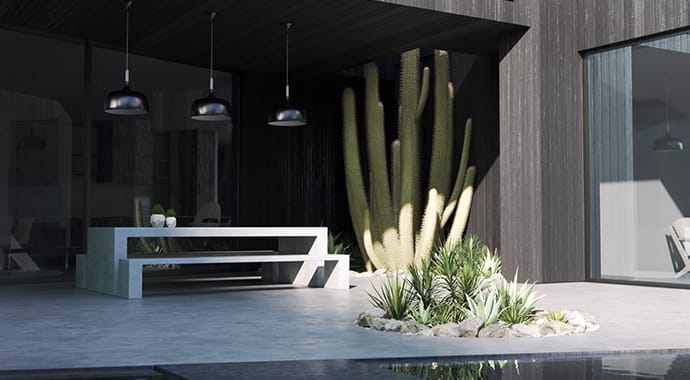
Upload images and image panoramas to Chaos Cloud directly from the VFB, and collaborate with colleagues and clients.
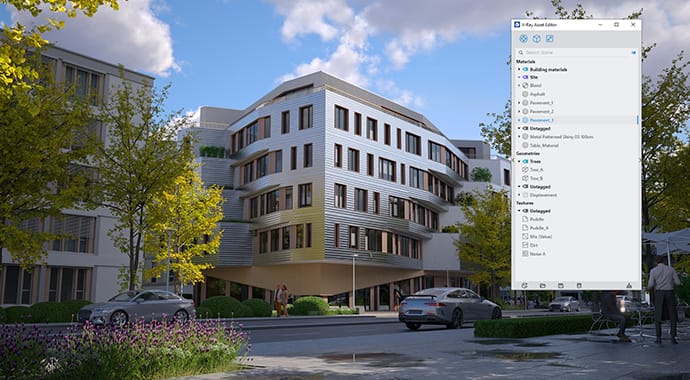
Add tags to families and materials, and manage complex projects more easily.

Experiment with different looks for your renders using the new built-in color correction filters in the VFB. You can also easily customize these presets to perfectly match your creative vision.

Define custom-shaped regions to refine specific areas of your scene, saving time and focusing on crucial details.

Enhance your visuals with the new Vignetting VFB layer, a highly customizable tool that lets you refine vignette effects for better focus and depth.

Clearly communicate your design concept and effectively showcase your spaces. Allow clients to explore your designs through the Chaos Cloud virtual tours, using highlights to direct their attention to key focal points.
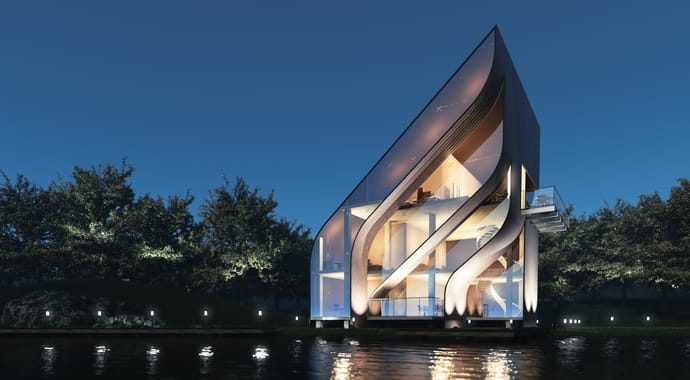
Simulate any type of natural, artificial, or image-based lighting.V-Ray automatically converts all Revit lights to V-Ray ones and further extends Revit's lighting capabilities.
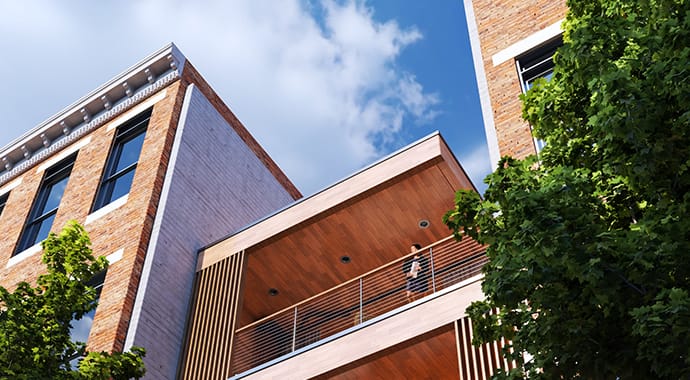
Study your model in different lighting scenarios without the need for lengthy manual setup. Automatically trigger hundreds of natural lighting scenarios, choose the ones you like best and render.
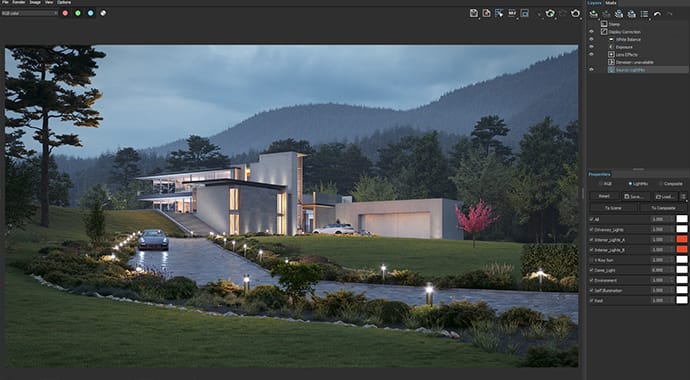
Experiment and adjust your model’s lighting after you have rendered. Tweak the brightness and color of individual or groups of light sources to find the best rendition for your space.

This lighting algorithm dramatically speeds up rendering in scenes containing many lights. And you can render image-based lighting much faster with the new Adaptive Dome Light. It’s exceptionally quick for interiors and substantially speeds up your rendering.
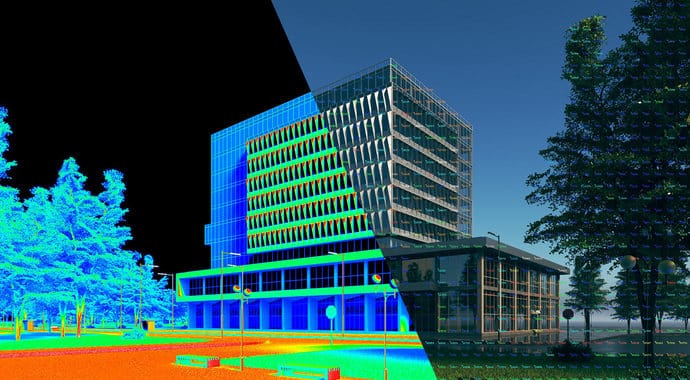
Easily visualize real-world illumination values (lux) with the new Lighting Analysis render element.
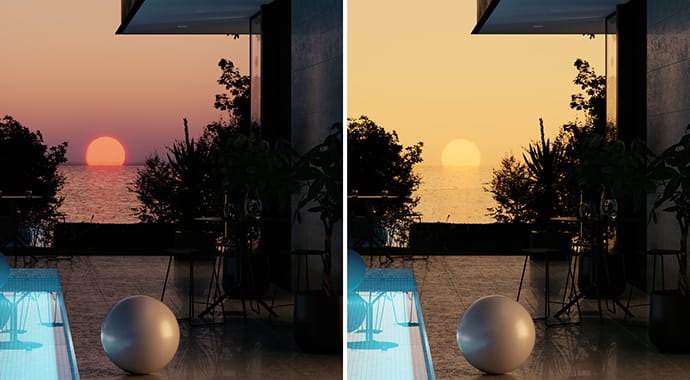
Take advantage of our improved sky model to present your design in its best light when the sun is at the horizon. Alternatively, use the sky generation parameters for full creative control.
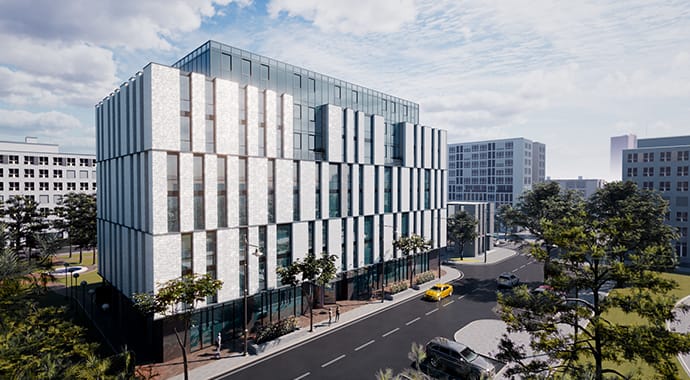
Add clouds to your V-Ray sky and animate them when exporting solar studies.
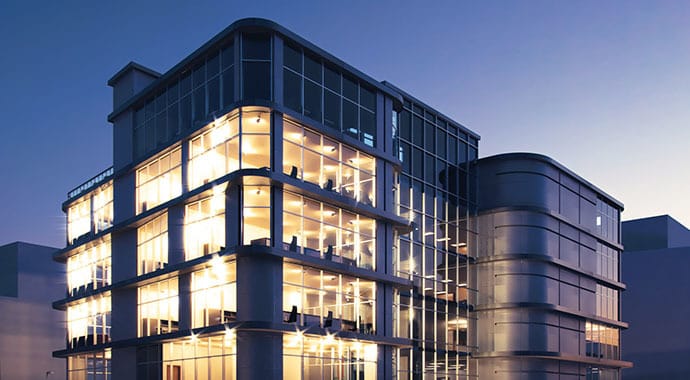
Render photorealistic rooms and interiors with powerful and fast global illumination.
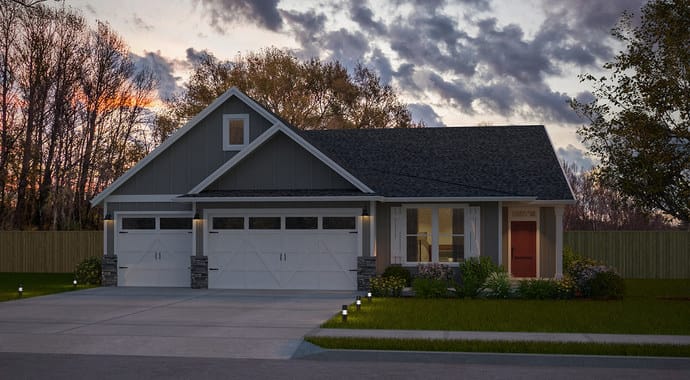 © Anna Androsova
© Anna AndrosovaWork like a photographer, with controls for exposure, white balance, depth of field and more.
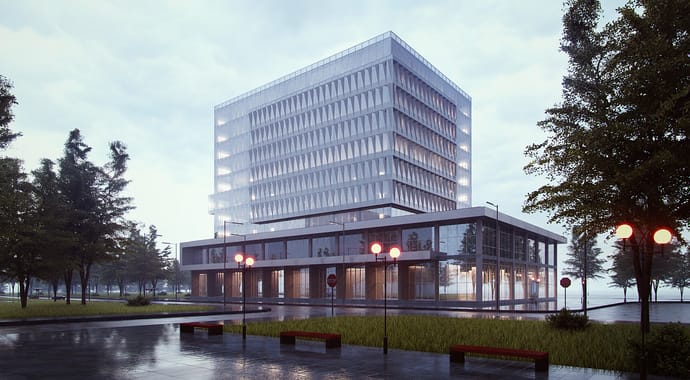
Capture the perfect exposure every time. The new Auto Exposure and Auto White Balance camera controls make rendering as simple as point and shoot.
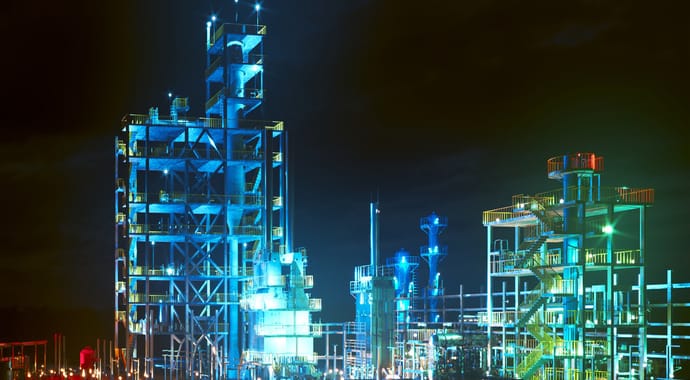
Add that extra touch of photorealism with real-world camera lens effects such as bloom and glare.
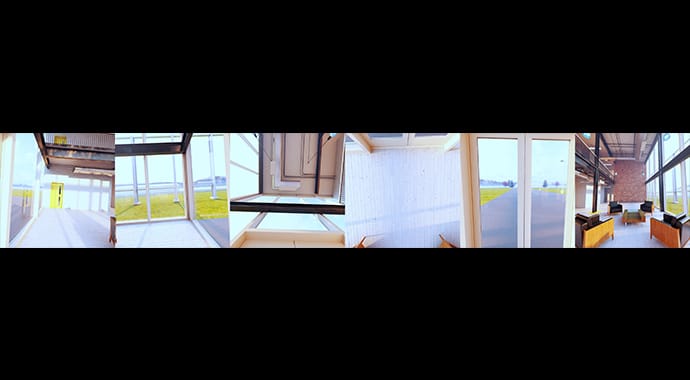
Experience your designs at 1:1 scale. Create content for popular VR headsets with 6x1 cubic and spherical stereo camera types.
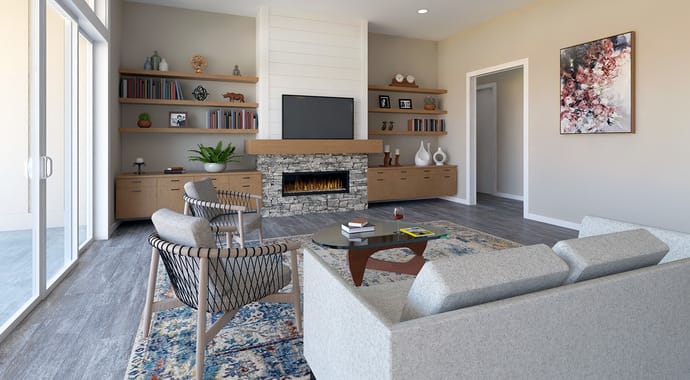 © Anna Androsova
© Anna AndrosovaCreate great looking materials that look exactly like the real thing.
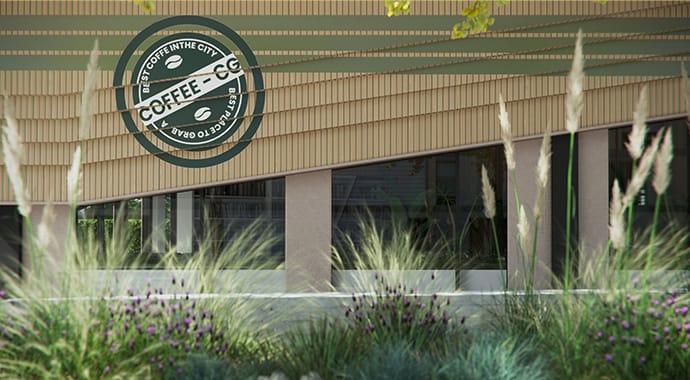
Add decals using V-Ray’s flexible system — place them onto any surface, across multiple objects, and even stack them one over the other.
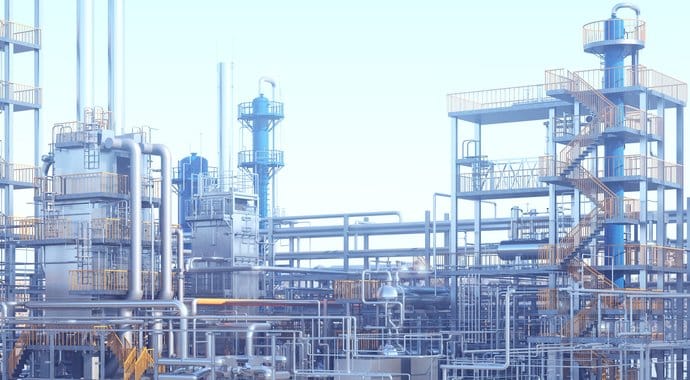
Render an enhanced version of your Revit material automatically. Alternatively, convert it to .vrmat and customize it to represent the actual complex material you’ll put in your design.
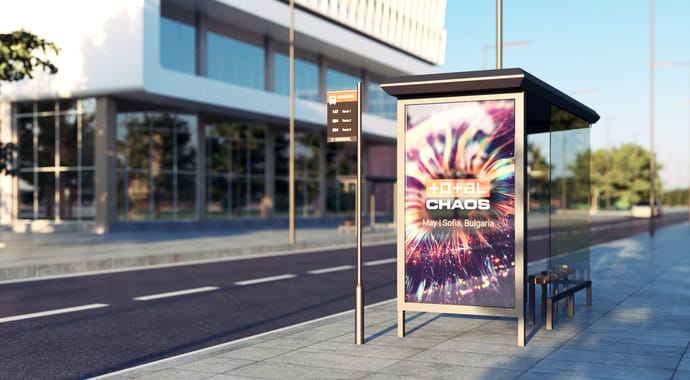
Add images to paintings, signs, screens and more. V-Ray for Revit has full support for Revit Decals.
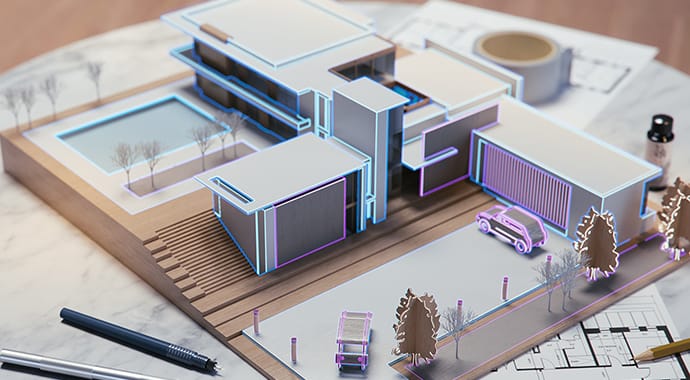
Give your model a sketch-like look. Use the global contour settings to create every outline automatically or the Contour material attribute to highlight a certain region.
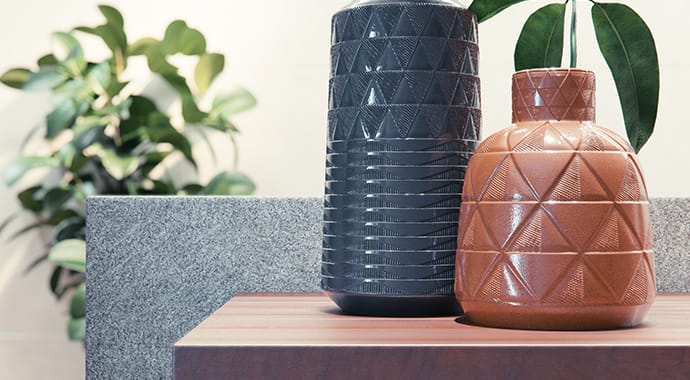
Use these two new layers to add distinct effects to V-Ray materials. The Coat layer creates polished surfaces while the Sheen layer is perfect for realistic fabrics such as silk or velvet.
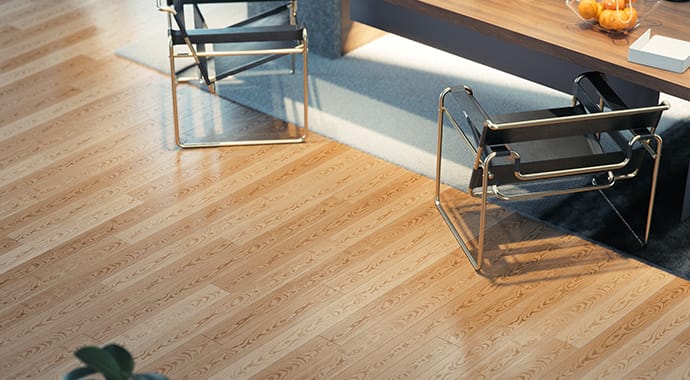
Use the UVW Randomization asset to create realistic materials by randomizing patterns and colors. The Stochastic Tiling functionality removes texture tiling seams.
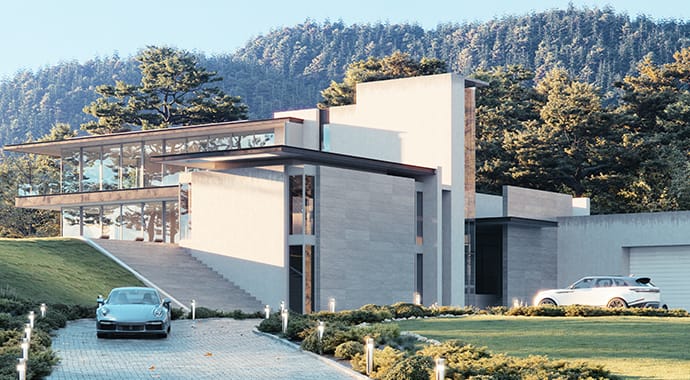
Easily add weathering effects to any surface of your model with the V-Ray Dirt texture. Control its position, amount, and the objects it affects.
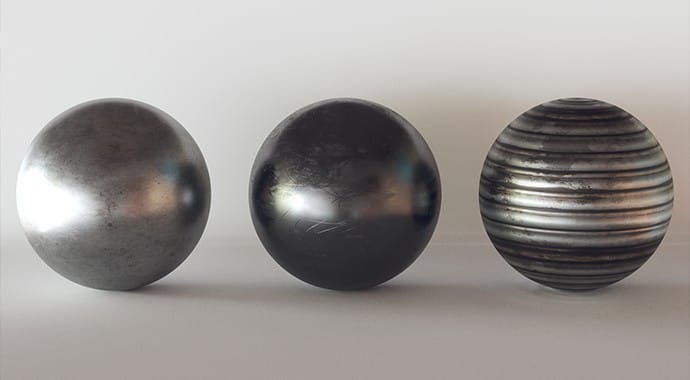
The V-Ray Material adds native support for metallic reflections (Metalness) for greater compatibility with PBR materials from applications like Substance Designer.
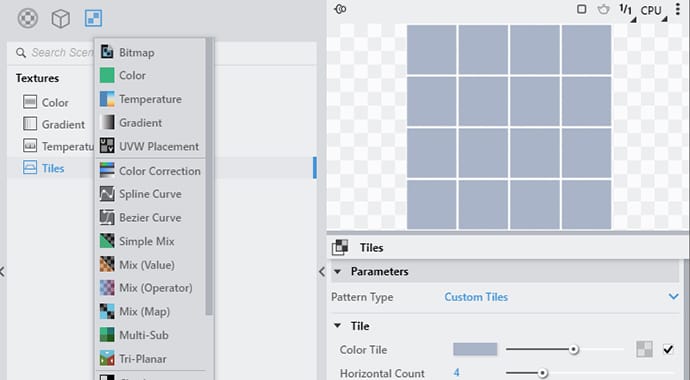
Create realistic and unique shaders using any texture map or one of V-Ray’s many built-in procedural textures - Gradient, Temperature, Tri-Planar, etc.
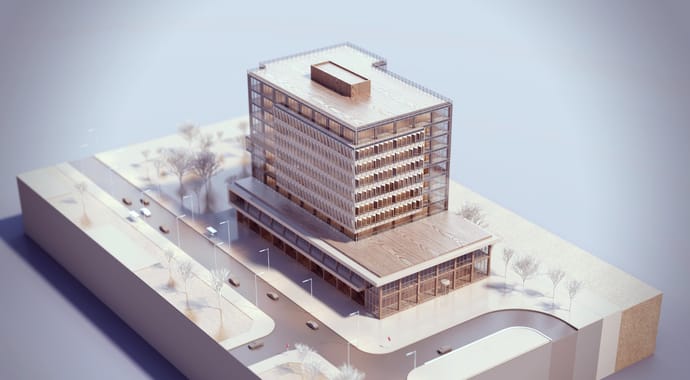
Make the most out of your early designs and get a feel of your project by quickly rendering cardboard models.
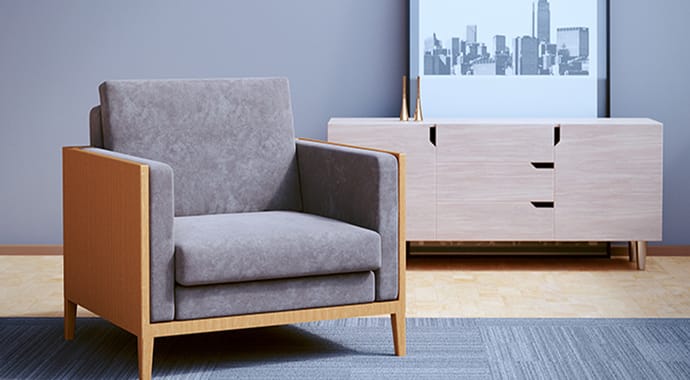
2,500+ scanned materials. Import and render directly in V-Ray.

Create highly detailed textures with a powerful new layering system, similar to Photoshop’s. Stack and personalize each texture layer with complete control over opacity, blending modes, and more.

Enjoy advanced UV mapping capabilities, enabling precise texture manipulation and better control over color distribution. Perfect for detailed applications like pattern colorization, brick randomization, and custom wallpaper design.
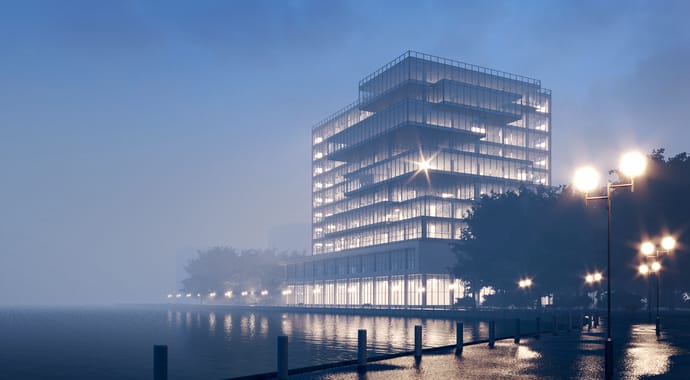
Quickly add realistic atmospheric depth and haze and use true 3D fog with realistic light scattering.
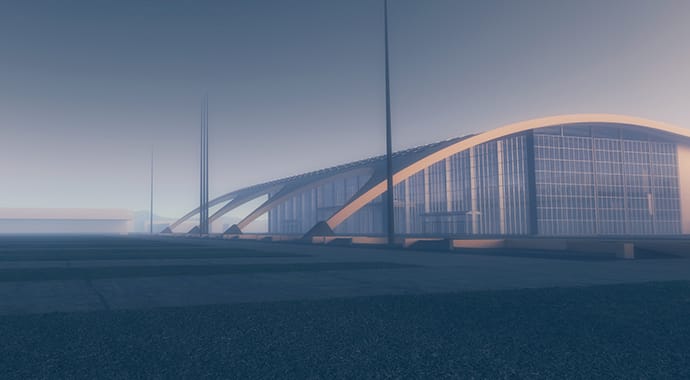
Simulate natural looking skies with realistic atmospheric depth.
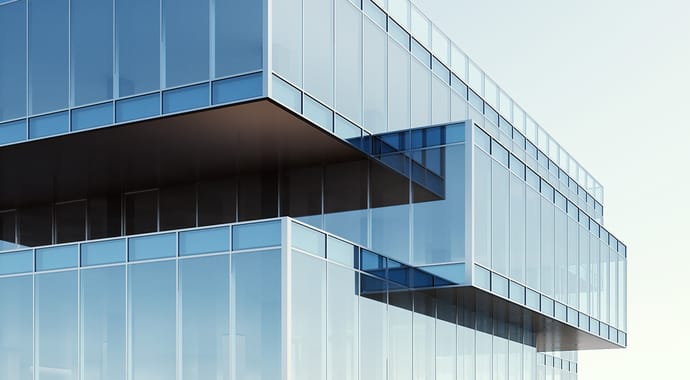
Realistic material light scattering and translucency.

Work smart without altering your BIM database. Use your Revit families as stand-ins for all V-Ray objects.
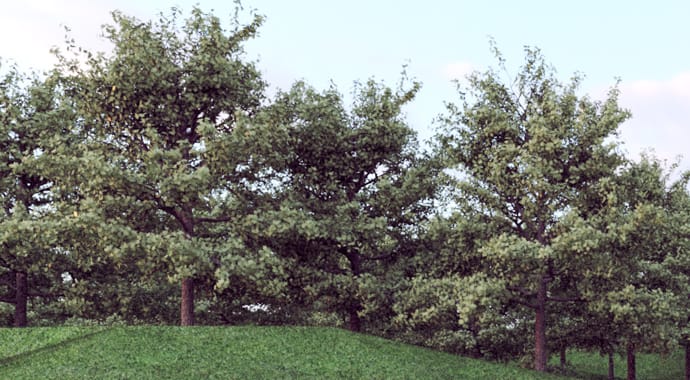
Use your Revit families as stand-ins for V-Ray proxy objects. These are memory efficient models of highly detailed objects like trees and cars.
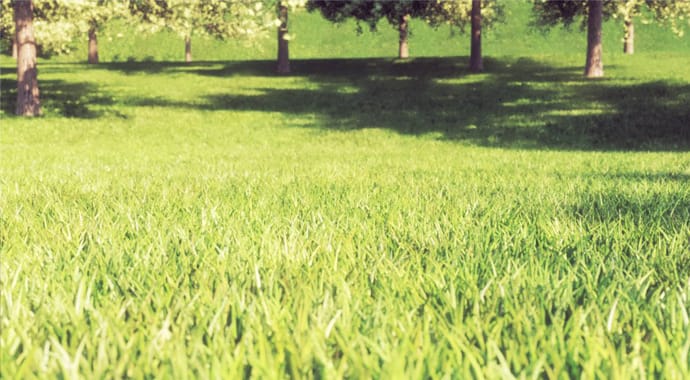
Render realistic grass, carpets or fabric.
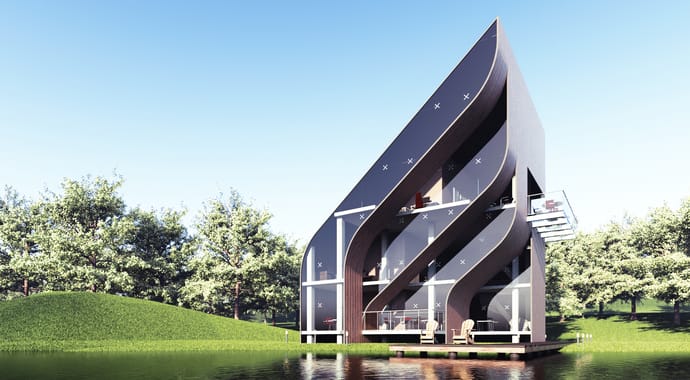
Add variety to your V-Ray entourage such as plants and trees by randomizing their scale and rotation.
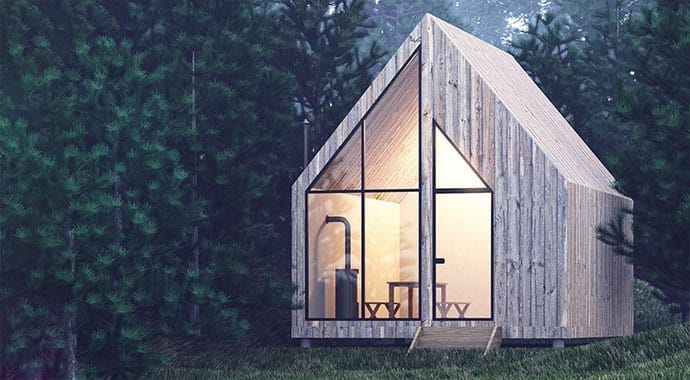
Link and render V-Ray scenes from other applications such as 3ds Max, Rhino, and SketchUp. Share complete ready-to-render V-Ray for Revit files.
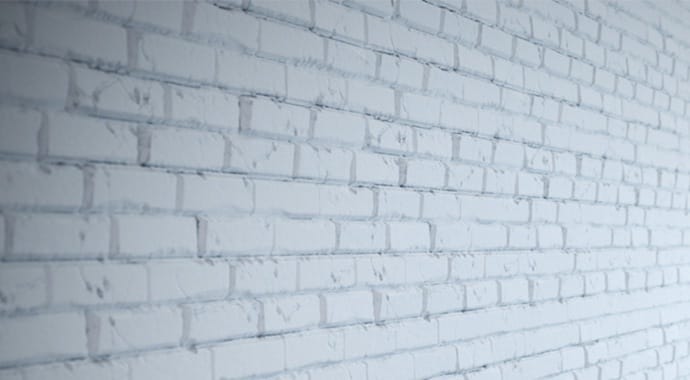
Quickly add surface detail without extra modeling when creating materials such as brick and stone. The displacement asset can be applied to both V-Ray materials and Revit materials.
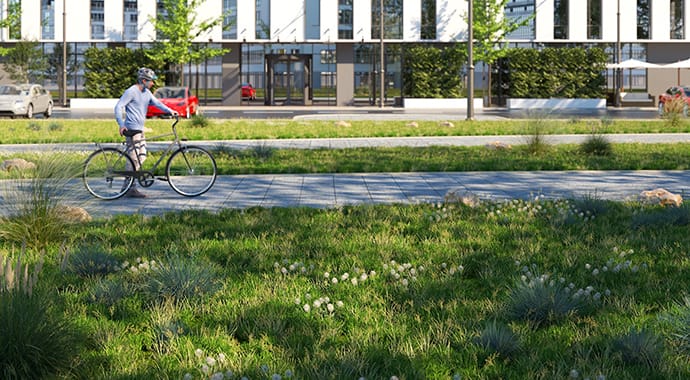
Scatter Revit families and Chaos Cosmos assets to create detailed terrain in a memory-efficient way. Use essential randomization parameters such as density, size, and orientation for maximum realism.
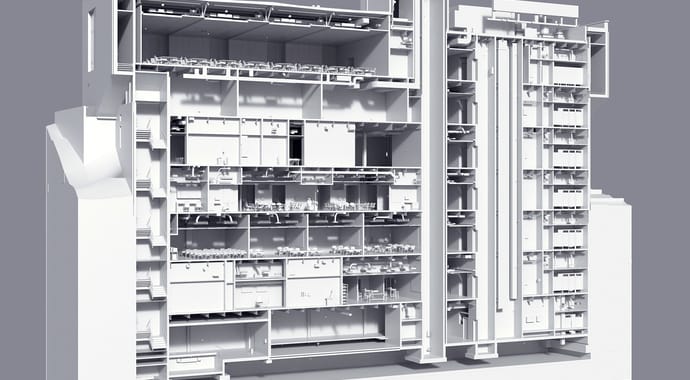
Render sections easily with full support for Revit's native section box.
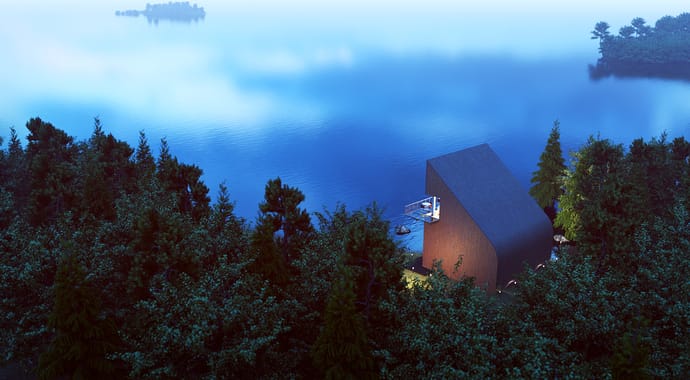
Create context for your project in a click of a button.

Effortlessly add grass, trees, rocks, and light sources to your scenes with just a few clicks. You can scatter across grids, curves, and volumes. And, you can limit scatter areas using area modifiers.